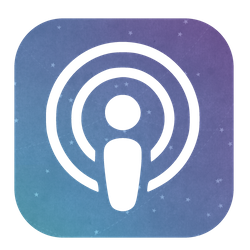episode 02
Working with Dream Clients – What Does That Even Mean?
Dream clients help us access the parts of our business that we dreamed about when we started our businesses in the first place.
In this episode, Sam & Karyn share the importance of knowing who your dream client is and actionable steps you can take right now to tailor your services to match what your dream client is looking for.
Episode 02: Working with Dream Clients - What Does That Even Mean?
Show Notes:

Understanding who your specific dream client is instead of taking someone else’s idea of a dream client and trying to make it work for your business.

When it is okay to work with someone who may not be your ideal client and how this can help you solidify who your ideal client really is.

How you can use your ideal client to hand craft your services and drive future business decisions that are in alignment with their wants and needs.

Understanding that your ideal client and business strategy will change over time, and you have the permission and empowerment to change them.

When to know the right point in your business to be able to say no to clients that don’t align with your vision of a dream client.
Episode Transcript:
Sam Munoz 00:00
When I think about a dream client, I imagine someone who is perfectly in alignment with the mission of your business, and with the result that you can offer. And then you get to decide, does that mean I want to work with someone that I want to have coffee with? Or does that mean I care mostly about the end result that we’re creating together is my dream client, someone that I just know, fits perfectly into the service that I offer is my dream client, someone that’s willing to pay a premium price for what I do, and it might be a combination of those things. But really, an ideal client is someone that kind of fits perfectly into that person I want to serve in my business. Welcome to making website magic where we empower women to step boldly into their web design businesses follow their intuition and claim the success they’re worthy of. I’m Sam Munoz.
Karyn Paige 00:51
And I’m Karyn page, where the tech wizards behind Sam Munoz consulting on the making website Magic School of Business. were two women here to talk about what it actually takes to run a web design business that’s aligned with your vision.
Sam Munoz 01:04
Spoiler alert, it probably isn’t what you think it is ready to hear about everything from refining your business vision, networking with intention and creating a magical client experience.
01:14
Let’s do it.
Sam Munoz 01:20
Well, hello, Karyn, I cannot wait to get into this episode. Today. Our energy is high. And I am stoked about what we’re talking about. How are you doing today?
Karyn Paige 01:28
Sam? Oh, my second cup of coffee, which is twice as much as I usually drink. So I think we’re good. Let’s get into it. And
01:35
what are we here to talk about today?
Sam Munoz 01:37
We’re talking energy levels? Yes. I’m also my second cup of coffees. One and a half. I’ve got this whole reel on Instagram, about drinking a second cup of coffee and how I’m always like, No, no, I won’t. I won’t drink it. And then I do anyway. And I’m always like, you thought you weren’t gonna drink a second cup of coffee, you silly girl.
Karyn Paige 01:56
I mean, if that’s your thing, like,
Sam Munoz 01:58
get into it lean into that. One might say it’s my dream, which is a great segue into today’s topic, working with dream clients. WTF? does that even mean?
Karyn Paige 02:08
Yeah, what TF? Does that even meet?
Sam Munoz 02:12
Right? So we hear all the time, find your ideal client work with your dream clients in your business, you know, blah, blah, blah. And we use that language to we use that language of dream client. We like the word dream, because it kind of reminds us of magic and visioning, and all of those things. But we’re talking about the same thing, ideal client, Dream client, you know, client, avatar, etc, etc. So let’s talk about why we’re even talking about this topic. Before we get into it. Why are we talking about dream clients?
Karyn Paige 02:41
And, you know, why is that important? Because when you work with your dream client, you have more fun in your business. Now, I don’t know, why is it important, Sam?
Sam Munoz 02:50
Well, it really comes down to Why did you create the business in the first place? Right? Yeah, you created this business, because you want to have, we’ve all created a business for different reasons. And maybe it’s multiple of these. But you may be created a business because you wanted more freedom, you wanted more fulfillment in your work, you wanted to work with people and you know, perpetuate things that you really believed in, you wanted to have impact you wanted to have, you know, no ceiling above you in terms of your financial opportunities. And so dream clients help us access those parts of our business that we dreamt about, that we you know, envisioned when we started this in the first place, and an episode three, I know we have it on our schedule to go even deeper into dreaming, and into creating space to vision out your life and your business. So we will let you guys go listen to that episode, which is already available when you hear this by the way, so you can start to think about how to dream. But before we get into that part of everything, we really wanted to start at this baseline level of dream clients and working with people and on projects that you care about, and that are important to you. Again, the phrase dream clients aligned clients, client avatar, those phrases are thrown around so much in our industry, and in the online space. So we wanted to break it down and talk a little bit about what does that even mean to have a dream client? And just go a little bit deeper into that? Because that’s what we’re all about on this podcast is going deeper?
Karyn Paige 04:14
Yeah, like, to your point about, like, the phrase dream client gets thrown around a lot. I think it also can become really broad and really overgeneralize to where you don’t know what that means. You just are like, I need to have gym clients. Because everybody’s saying that’s how you are your business is with dream clients, right? But like, let’s step back and be like, what is the dream client? So really, it’s like, what is a dream client? But then what is the dream client for you? specific, right, right?
Sam Munoz 04:45
Yes, because in the last episode, we touched on this a lot about this idea of being force fed, what we think we need in our business, what we think we should be doing in our business, what our business should look like, what business model we should follow all of those things. And if we start taking on other people’s idea of a dream client, then we’re doing that same thing. We’re building a business that’s not truly ours are in alignment with us and what we want to be doing in our life and in our work. So like Karyn said, you get to decide what a dream client means to you. And we have some examples, some from our own experiences and what we believe, you know, our ideal client is, and then some from conversations we’ve had with other people, but really, I’m going to try to define it. And then I want you to jump in here. And if I’m missing anything, but like, when I think about a dream client, I imagine someone who is perfectly in alignment with the mission of your business, and with the result that you can offer. And then you get to decide, does that mean I want to work with someone that I want to have coffee with? Or does that mean I care mostly about the end result that we’re creating together is my dream client, someone that I just know, fits perfectly into the service that I offer? Is my dream client, someone that’s willing to pay a premium price for what I do? And it might be a combination of those things. But really, an ideal client is someone that kind of fits perfectly into that person I want to serve in my business?
Karyn Paige 06:10
Yes, yes. That’s something sums it up. I’m trying to think like, Is there anything to like, add into that, because I feel like, it’s definitely a combination of those things. But ultimately, it’s like, you get to decide what pieces are in that combo, you know,
Sam Munoz 06:26
right. And kind of going back to what we were saying before, if you start assuming other people’s dream clients, then you’re going to start serving people that aren’t fully in alignment with who and what you want to be doing. And so you might like book all these like high ticket projects. And, you know, this is a $20,000 project. And that’s great. But like you don’t care about what you’re doing, it’s you’re not going to perform as well, you’re not going to be as invested in the project, you’re going to be so drained after working with them because you did it for the money or for the accolades or for all these other things. And so really understanding who you want to work with, so that you can make sure that you’re not getting so depleted after the project is also like another component of this here and why you can’t just assume someone else’s dream client.
Karyn Paige 07:08
Okay. So as you’re saying that I was like, rubbing my furrowed brow again, because that does not sound like a dream client. To me, a $20,000 client doesn’t sound like a dream client. If when I’m working in that project with them, I feel super gross, I resent that I have to show up and work on this project. Because I’m not in alignment with like what they’re doing. I don’t feel lit up inside, because I’m actually helping them carry out their mission, but I don’t like or agree with what their mission is. So it’s very like kind of like business for hire type of thing. And for me, like when one of the things that I realized with dream clients is I really have to like, feel aligned and invested and really interested in what they’re doing. Because if I’m going to be helping them create a universe in their website, like helping them connect and communicate, and lead them into conversions, and basically fulfill their dream, I want to feel like I’m aligned with that because I’m getting like all Tingley just think about thinking about it. Because I’ve had those kinds of clients where you’re like, I show up, I open up my computer to start developing, and it’s like, there’s a pit in my stomach. Mm hmm. And for me, when you have to keep reminding yourself, okay, well, you’re just doing this project, because that money’s coming in, you’re gonna get that invoice, just make it to the finish line, like get the money like that is not aligned at all with like, my dreams, or how I want to earn my money and things like that. So you can dangle that $20,000 carrot in front of me, but I’m not biting because it don’t taste good.
Sam Munoz 08:43
Oh, my gosh, what a good point. Totally Karyn. And that’s a perfect example of like you understanding who you want to work with, why you want to work with them. And what that means I have a very similar ideal client, like, I want to feel like I’m in partnership with them in their mission. I want to feel respected in my expertise, and also know that I can contribute more than just the website development process, right? I want to know that my contribution extends beyond just the implementation, but also into more of like the strategy and the design choices and the user experience and things like that. I have had projects that are worth tons of money, that I have been like, nope, don’t want to do this again, because I’m personally not like a very money motivated person. So no amount of dollar bills in my bank account is going to make me feel better about perpetuating a mission I don’t care about. So I’m 100% on board with you there. And that’s the kind of very similar to my dream client. Now, the thing is, we might differ in like the specifics, right? And we’re not talking about like, demographics, right? This is not like where your person shops and what color their hair is. And you know, where they went to school. And if they have children, this is what are they doing in their business. And that’s the kinds of things that we’re talking about. Now, I want to give like a different example because not everyone might resonate with this idea of Like that type of dream client, right? Like my dream client, I would love to like meet them in person and spend time with them and have a coffee with them and chat with them, because I want to hear more about the person side of them. However, I was having a conversation with someone on Instagram about this topic of dream clients. And she mentioned that dream clients, you know, she doesn’t really like that idea. And I challenged her because she said, she likes to work with clients who she can get results for. And I’m like, Well, what if we took that and made that your dream client, right, because that is an example of someone who you can do the result for. That’s what I was saying in the beginning about like, you can give them the result that they’re looking for, you can create their website for them. And that’s an idea of a good dream client for you. It’s someone who has their stuff together that has all of their content ready, that has their branding stuff ready, they’re very clear on their mission. And even if you don’t co author that mission with them, your dream client is someone that is just ready to work with you and need your service. That can be a dream client.
Karyn Paige 10:57
Yep. So it’s really like understanding the variety that’s possible in the dream, like a dream, for us is maybe more like mission driven. Where as a dream for somebody else may be more like results driven, or like maybe a dream kind of somebody who’s kind of like defers to you and is like, hey, just tell me what to do. I’ll do it. Here’s the deliverables go forth and conquer. I totally believe in you. Like, I don’t even want to check in with you just make it. So number one. Yeah. So you know, where somebody else their dream client is like, no, let’s do check in calls. And let’s see how we’re doing. And I want to do all kinds of like, avant garde like mind mapping stuff, so that we can uncover this design of your website? Like someone who’s like, yeah, let’s, let’s feel this whole creative, collaborative fantasy, right? But again, it’s like, Who do you want to work with? Who do you want to work with? But just like that general idea of like, figure out your dream client, and whether they shop at Target or Walmart, or whether they watch The Bachelor Real Housewives, or you know, whether they’re 38 years old, with brown hair, or like, married with kids in Chicago, or something like that, like, that’s really kind of surface level?
Sam Munoz 12:12
Mm hmm. And how are you going to find that person? Like, how are you going to, like, find that brown haired target shopping person and connect with them? Like, it’s not deep enough to like, create things that like, attract them to you? Right, right, right. So I know that one aspect of this topic that we wanted to get into was, okay, so what a dream client is, what that means to you why it’s important, why we’re even talking about it. But we did want to talk about this reality, that you might be working with people that aren’t necessarily your dream clients right now. And whether you know who those dream clients are yet or not, is fine. But you might be taking on projects as they come to you. And it’s not necessarily a bad thing to work with clients who are not your dream client. And we had some some things that we wanted to talk about with regards to this. Because honestly, like, you learn who your dream client is, the more people you work with, there is I would say, it is almost impossible to know who you want to work with, until you’ve worked with people who are not the right fit. And I can give plenty of examples of that where I’ve worked with someone and you know, I’ve said yes to their project. And we did the project, and I evaluated afterwards. And I’m like, ooh, something about that didn’t feel quite right. Or maybe it was just a little off during the whole project, or whatever the case may be. It was after those experiences that I was like, You know what, this is not the type of person I want to work with. I’m glad that I did. But this is not necessarily like the direction I want to keep going. So next time someone comes in with an inquiry that’s similar to this person, or I can get that same vibe. I know, I’m probably going to say no, and redirect them somewhere else.
Karyn Paige 13:46
Yeah. And I want to preface that too, by just saying like, in no way are we trying to say work with people who treat you like crap work with people who underpay you work with people who like bossing you around, and they expect everything for you to do to be at their beck and call or whatever, like, No, no, no, no, like, we want you to have standards. We want you to be treated with respect at all times. But like, Yeah, sometimes the projects that you take on, maybe aren’t like your gold star projects, but they’re still incredibly valid and valuable on your journey to like, really uncover what your dream client and what your dream project could look like.
Sam Munoz 14:24
That’s such a good point, Karyn, because you’re talking about projects that aren’t quite in alignment, right? They’re not awful. No, there’s a difference between like a non there’s like three levels, right? There’s like, you know, ideal or dream client. There’s like, not quite ideal client and then there’s like, absolute horrible client to work with. We are not advocating for working with those types of people because you are your own boss here. We empower you to say no to those opportunities to exit situations that are unhealthy. And we should probably create an episode all about that about, you know, recognizing those boundary cracks. Seeing clients, and we can. So if that’s something that’s interesting to you guys, make sure you send us a DM and let us know oh my gosh, I need that. Because I’ve definitely talked about that in the morning tech with Sam show way back in the day, because sometimes like, it’s just not the right fit. But that’s not what we’re talking about. We’re talking about those not quite dream clients, but ones that you know, you can still serve and still get a lot of value out of working with them.
Karyn Paige 15:20
Yeah, like those kinds of projects where maybe you’re getting paid to practice, a skill that you didn’t already have. But love that, you know, it’s like, somebody is like, hey, I want to work with you, I need this thing. And you’re like, yeah, okay, let’s, let’s take on this project, I know how to build a website. And now you’re just asking me to do something that maybe I haven’t done before, but I’m gonna get paid to do it. So there’s value in being in that experience, right?
Sam Munoz 15:45
Or you have the capacity to say, Yes,
15:47
yeah, you know, yeah, you
Sam Munoz 15:49
have extra capacity. That’s okay, too. It’s okay to say yes. If you know, you have the base for a type of project that you know, is not quite in alignment. Or if you’re serving someone that, you know, could really benefit from your result that we didn’t even talk about this before Karyn but like, if you’re serving someone who needs what you offer, even though they’re not quite the right fit, I can think of several clients who I was like, I know they need a good website. I’m not like, I’m not against their mission. But it’s not something that I am, again, a co author of, let’s say, but they are so passionate about what they do. And I want to help them get that out into the world. That’s okay, too.
Karyn Paige 16:27
Yeah, yeah, absolutely. Like, it’s very kind of like, Don’t miss the forest for the trees kind of analogy. I love that. Because to me, that’s really more in service of like, I just want to help you, I want to help you get your thing out there. And I know that I can help you even maybe if like, it’s, again, like not what I thought I had set out to do, or who I thought I had set out to attract, like you’re there and I can help you. Let’s do this.
Sam Munoz 16:56
Yes. And honestly, like, who knows, working on that kind of project in terms of like being able to figure out what you like to do and what you don’t like to do and who you like to work with? And who you don’t like to work with? Like, could you imagine like saying yes to a project like that. And then realizing halfway through Oh, my gosh, I never thought I wanted to make an e commerce store before. But look at what this project has produced and how good I feel what I’m doing this. So being open to those opportunities is a gift, it is a true gift.
17:24
Can I just say
Karyn Paige 17:26
it really is like being open to those opportunities, having the experience and also through that experience, like kind of stepping back after the project is done and reflecting and be like, Okay, what worked? What didn’t work? What did I like doing there? What didn’t I like doing there is this something that I’m going to want to do again later. And if it’s an inner capacity where like, on this project, you learn something new, maybe that ties into like something you can begin to explore as a future offering or service. And if it’s something you didn’t like to do, then you can move forward and be like, I’m never going to offer that again. And that’s okay, right? Because that’s actually, that’s actually going to help you I think, get closer to what your ideal client is when you are aware. And you can discern those things that you like, the type of work that you like to do, and the type that you don’t like to do, which I think is also equally as important as the type of client that you have. It’s the type of work or service that you offer, the type of result that you’re giving them, right? Because your ideal client could be like somebody that you want to have a coffee chat with, and you want to help them uncover what they do and help them drive their mission forward. But they’re like, well, that means build me an e commerce website. And it’s like, but I don’t want to build any Congress was like, I love you so much. I want to invite you to my birthday party. But I don’t want to do that. That’s okay, too.
Sam Munoz 18:48
Yeah, we’re such big advocates of self evaluation, and thinking through things after you do those types of projects or even like refining, you know, I mean, Karyn and I are constantly refining the business, we’re like, do we like working with this type of person? Do we want to still offer these services like almost after every single project we do, there’s an opportunity for us to evaluate, do we still want to offer this type of service to this type of person for this price point, like taking that time to take a step back, instead of just rolling into the next one is such a good, you know, like, it creates a good breathing space. And it’s actually something that we’re doing in the first pillar of the making website, Magic School of Business Program, which is our six month program, where we’re taking people through a lot of the things that we talked about in the podcast. And the first pillar is all about inner work. And it is about thinking about your business, thinking about your business vision, and specifically thinking through your dream clients, the types of people you want to work with the types of projects you’ve enjoyed the type of work you want to be doing, and all of that stuff. So I think that that’s so important to make the space to evaluate those things so that you can move forward and say, with discernment, this project is a good one. This one is not a good one. I can say yes, I can feel empowered to say no, etc. I love that,
Karyn Paige 20:03
yeah, having that opportunity to really check in with yourself is so important. And I think that’s something that a lot of web designers really overlook when they get started with their business, or maybe you find out that like, two years into your business, you’ve been working on all these projects and all these clients, and that’s when you’re like, I need to really like step back and refine, because if I’m gonna move forward, and really like build a business with longevity, I want to be doing things a little bit differently. And so like giving yourself the space, wherever you are kind of in that phase of your business, to do that inner work to vision out what your business is, is like so valuable, and it will be so helpful moving forward, like you can’t, I know, I didn’t do it, when I started my business, I was just like, I can build websites, let’s go, you know, but I know that if I take in time to really do that inner work, things would have ended up a lot different things would look a lot different. And yeah, I think I would have felt like a lot more empowered and a lot more confident. So I’m really excited to cover that kind of exercises. And that kind of thought work in making website Magic School of Business, for sure.
Sam Munoz 21:12
I totally agree with you, Karyn. And I also think that it comes down to giving yourself permission to change permission to decide, this works. For me, this doesn’t work for me. And then a couple years later, you know what, I don’t want to do this anymore, I want to change and I want to offer this, you guys on your own businesses, you get to make your own choices here, you get to decide what services you offer, this is your chance to embrace all that empowerment. And say I want to work with this type of person, I don’t want to work with this type of person. This is the type of thing that my business offers. And this is what I do. So I hope that that is empowering to you to hear that, that you have the permission to do that. And I do want to address something as we kind of start to wrap up this episode, in order to actually get the chance to be discerning about these different types of clients, you do have to have more opportunities coming your way, right? You can’t really say no to opportunities and to clients and to people that are not the right fit for you. If you don’t have enough volume of inquiries, that’s just math, right? You really can’t say no to this client. If that’s the only client that’s reached out to you in the past two months, you kind of have to say yes, because you have bills to pay, and you have you know, your your business to keep moving. And so the goal then becomes getting enough volume, getting enough opportunities, getting enough discovery calls, to be able to say this person is the right fit, I’m going to say yes. Or I’m going to make it empowered, no. And I’m going to say no to this client, and I’m gonna refer them elsewhere. You can’t do that unless you have enough opportunities. And that, you know, kind of going back to what we talked about before, that is something that we talked about in the School of Business is how do you get more opportunities and more discovery calls and more inquiries in your business so that you can decide, I am going to work with my dream clients. And you don’t have to feel that scarcity. And that fear of if I say no to this person, that might be the last person that’s going to reach out for the next month.
Karyn Paige 23:11
Yes, Sam, that’s huge. And that ties it back into like the self reflection and self evaluation thing, too. It’s like more, you get to talk to people. And you get to figure out what a potential client might need or what they’re looking for, or the way that you communicate with them on a call being an indicator of what it would be like to work with them in the project, like you get again to like really uncover where your magic is like what that magic thing is for you. But it’s really, really hard to do that if you’re only talking to one person a month or one person a recorder. But the more you talk to people, the more opportunities, you’ll have to make those observations and get really clear. And also just save yourself a lot of like pain and frustration and working on things that you don’t want to do. Because you’re afraid that that’s the only project that’s coming to you this quarter.
Sam Munoz 24:05
Totally, I do think that a lot of this comes down to like tracking things, you know, track like after you get off of a call deciding, you know, did this person say yes, they want a proposal from me? Did they say no? Were they a dream client? You know, if they it’s I’m like imagining a spreadsheet in my head, right? It’s like if they said no. And they were a dream client, what was the determining factor there? What could I improve? Or what do I need to change? Or, you know, how can I improve my sales skills, etc? Or if they said, Yes, and they weren’t a dream client? Or if they said no, and they weren’t a dream client, like that sort of information is really important to track because the yes or no, of a discovery call isn’t all of the information right? And kind of going even deeper into that. Discovery calls. So when I say discovery calls, I mean, like getting on the phone with someone for free and just understanding what they need and if you can serve them that’s what we mean when we talk about discovery calls. It’s not really it can be a sales call, you know, quote unquote, but I’d like to think of it more like understanding a person’s needs, figuring out if you can even help them and then offering the opportunity for them to take the next step with you with a proposal. So just throwing that out there. That’s what I mean by that. But a discovery call is also an opportunity to get to know your potential dream clients too. Because you can figure out you know, this person actually is a dream client, I know that. And so let me figure out what they need, what kinds of things they want. And even if they don’t hire you, you have all that information to go off of. So that you know, okay, every person that I talked to, that’s my dream client, they actually really need an e commerce site. And I’m so thrilled to work with that kind of person that I want to sharpen up my e commerce skills. So you can start to make that map, right, make that connection. So it really comes down to figuring out who you want to work with. So that you can decide, okay, now I need to offer this other service, or I need to offer this other package or I need to make sure my price point is something that they can afford, or they need it in a quicker timeframe. That’s a ton of examples. But the point is,
26:00
I’m like, I want to add some examples. Yeah.
26:05
Yeah, it just made me think like,
Karyn Paige 26:07
you know, your dream client might also like, in addition to what they actually why and you didn’t know that. And you learn that because you started talking to a bunch of people that you are really excited to work with in the future, or even, we’re going to do a podcast on Discovery calls. At some point. I’m certain about that, right? I just the whole
26:27
a whole podcast on
Karyn Paige 26:29
like, you might learn that in a discovery call that your dream client doesn’t want to do like checking calls on zoom every week. You know what I mean? Yeah. So you’re like, Oh, I can take that piece out of my client experience, then, you know what I mean? So like, you can learn about what working with those people might be like, what they’re interested in what they need. And and you can actually, like craft is really magical client experience based on just like talking to them and asking them when a big takeaway from this episode too, when it comes also, when it comes to understanding what is a dream client is also like, understanding what experience you can offer them, right. And so there’s a lot more to it than just like, there’s this person who looks like this, who lives in this town somewhere. It’s like, Oh, my dream client, they want a full like white glove def why, like experience, and I may never see them or whatever, or, you know, again, like no, my dream client is somebody who needs to hear from me, because they’re expecting me to like, be their consultant, and really give them the ideas and point out the things that they hadn’t thought of, and etc, etc. So, but you don’t know that until you get to talk to people. And I think I’m really excited to do an episode on Discovery calls.
Sam Munoz 27:47
Yeah, me too. I think that’s gonna probably be one of the first 10 episodes that we have here. Maybe Episode
Karyn Paige 27:52
Four, who knows, keep listening,
Sam Munoz 27:54
keep listening. So you guys can hear all about that. And we can break down the discovery calls even more and how to get more out of them. Okay, so let’s kind of wrap this episode up. So some of the things we touched on, were again, why were we even talking about dream clients? Why is it important to know who they are what they are, to break down that jargon. Also, you get to decide who your dream client is. So just remember that, right? So as you’re navigating this online space, and you’re hearing people talk about that, remember that you at the end of the day, get to make that decision. And as you’re working with different people, you are going to get closer and closer to understanding who that dream client is, and who you want to work with and who you want to be serving in your business. Yep.
Karyn Paige 28:32
So the more you talk to people, the closer you’re gonna get to your dream,
Sam Munoz 28:36
right, creating more opportunities for yourself to meet that person. And again, you’re three degrees away, I really believe you are three degrees away from your dream client. So you might not know who they are yet, but they are out there. Believe that believe in that abundance. And remember, if you just believed that, how would you operate today? If you believe that you were just a couple of phone calls away from your dream client? How would you show up today in your business?
Karyn Paige 29:00
Oh, yeah. Think about that. Think about that. I think that’s a wrap. That’s a wrap.
Sam Munoz 29:07
that is a wrap for this episode. Yeah, this was this was so insightful and I hope you guys found it insightful to
29:13
Bye bye.
A Season of New Beginnings
Today Sam & Karyn make the bittersweet announcement to end the podcast as they step into a new season of life and business. They share what is to come for them, how you can stay connected to the Making Website Community and encourage you to be open to new opportunities, too.
Season 02 in Review
Today Sam & Karyn look back on season 02 of the podcast, celebrating successes in the mentorship, launching our free community, the future of the podcast and Making Website Magic at large.
People-Pleasing as a Web Designer & Developer
Today Sam & Karyn discuss people-pleasing, understanding that your business has needs and how to honor them in your client relationships.








